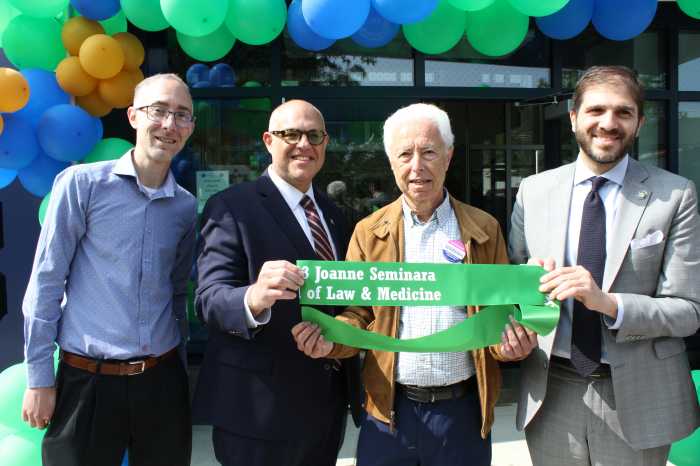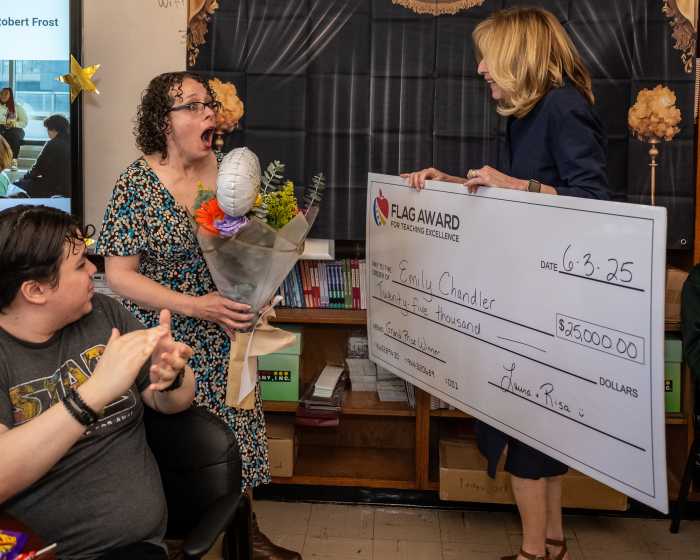My teenage daughters are in a phase of life where their own interests and friends seem most important at almost every moment, where they would rather spend free time catching up on the latest episode of “House” or “Glee” than with me.
And that can become a real problems this spring holiday season.
Passover begins this Friday evening and I have planned a Seder with my family and friends, as I have for all the years I’ve lived in Brooklyn.
When my daughters were little, they would always help with the cooking, polishing the silverware, and setting the table before the big event, but now it’s hard to drag them away from their devices long enough to help with preparations and I wonder if the reward is still worth the effort.
It got me thinking as to why I even do it. Is it worth all the cooking and cleaning, moving furniture, and pulling out the folding table and chairs to squeeze bodies into our small dinning room? What do we all gain from this?
I guess the answer is tradition.
Our Seder is a tradition I created through repetition, making sure that year after year the same people showed up for the same meal, with everyone sitting at the same seats.
Our Seder, hopefully, makes my girls feel connected to their religion and feel part of a community. This custom reflects my values, that we are a Jewish family, that we celebrate freedom and liberty. Our annual ritual communicates a certain continuity and predictability to the year.
But does that make it the right thing to do?
There are bad traditions, for sure. After my parents divorced, my mother insisted on continuing to observe New Year’s Eve even though she was always very sad at that time of year, making the evening a real downer for me and my sister. I was certainly relieved to get out of that as soon as I could and it took many years before I found new customs to share with my children.
And there are other routines that lack some sort of the meaning that gives them the status of traditions. For many years we went to Coney Island right after school ended with the same group of friends, and we spent Memorial Day with grandparents in New Hampshire. But when schedules became too full or better offers came along, these habits fell by the wayside, without a real sense of loss.
A good tradition is a touchstone, both a place to return to and a way to get there. My 17-year-old only has one more Seder before she is at college and may be unable to join us. My 14-year-old isn’t too many years behind. But my girls can return in some way when they have their own homes and families, using their Seders to reconnect with something bigger than themselves — family, community, religion, things I hold dear.
Of course the real key to a good tradition is fun, so ours includes whacking each other with scallions, improvisational dances, some piano playing and the usual good food and festive beverages. Hopefully the evening builds good memories along with something more, a deeper meaning.
And it will be worth the effort — to all of us.
























